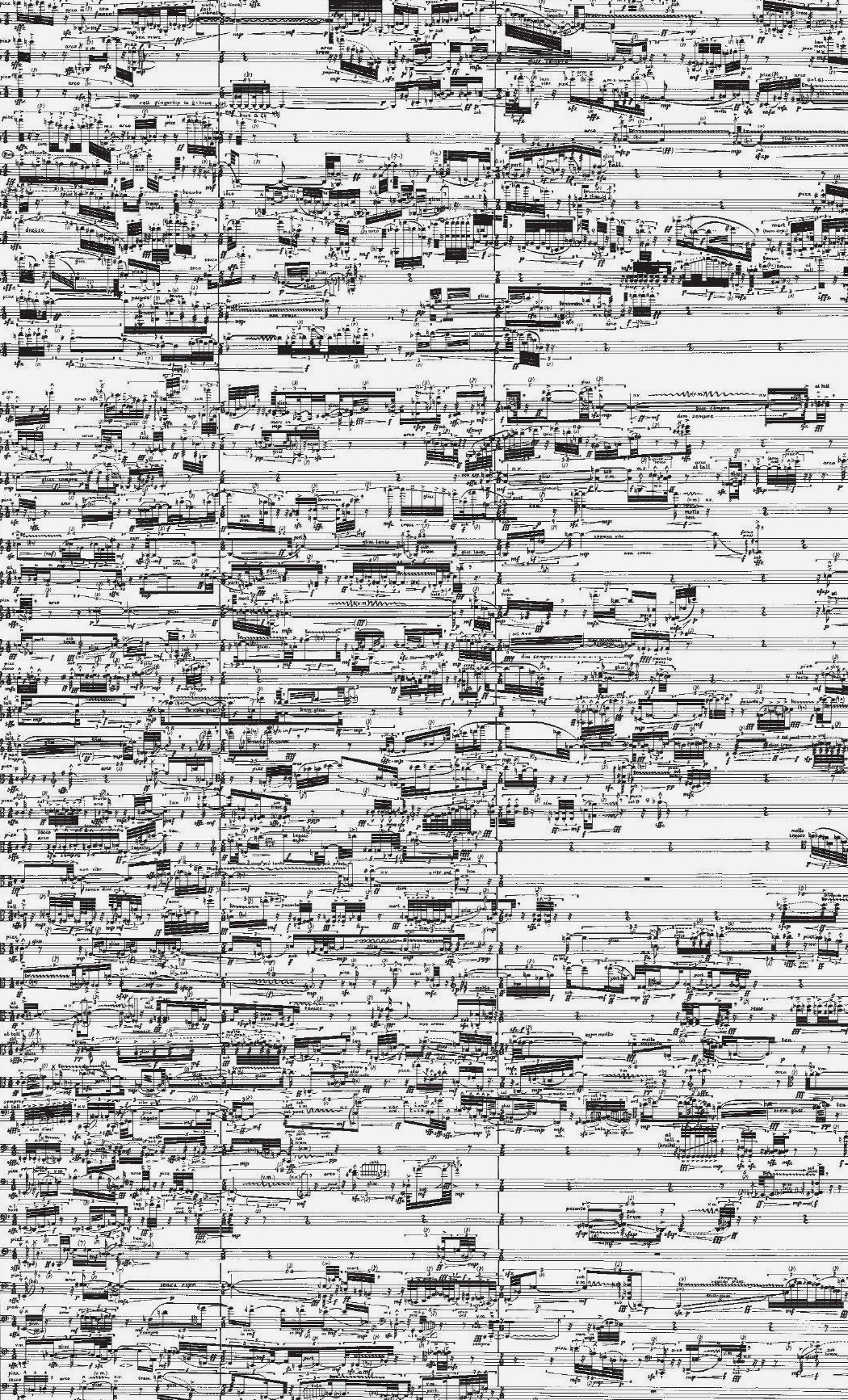What is New Complexity?
A brief history of New Complexity must include the names Brian Ferneyhough, Michael Finnissy, Chris Dench, and Richard Barrett, each with their own sonic and philosophical worlds, and all of whom came together in the 1980s under the term “the New Complexity.” New Complexity came to mean “a lotta notes.”

In his doctoral dissertation, Stuart Duncan corrects the notion that complexity in music has to do with densely notated scores, often referred to as “black scores,” so filled with notations that one can hardly discern the music in this tangle of information. Instead, Duncan asks: Where does complexity reside, if not in intensely complex notation? In other words, what is meant by complexity? “Complexity,” he clarifies, “resides in the interstices between the composer and the score, score and performance, and performance and reception, in whose confluence ’the work’ might be said to exist”.1 Elaborating on this idea, the musicologist Harry Halbrich cautions us that we should not confuse complexity with complication, and that complexity is, he suggests, “a prerequisite of any great art wishing to satisfy not only the sense and feelings, but also the mind."2 New Complexity music, moreover, foregrounds what is cognitive about music by elaborating upon its theoretical premises to a new extreme.
__
(1) Barry Truax, “The Inner and Outer Complexity of Music,” Perspectives of New Music 32, no. 1 (1994): 176.
(2) Duncan, S. (2015, April 30). The concept of new complexity: Notation, interpretation and analysis [Cornell University]. Retrieved March 4, 2022, from https://www.academia.edu/7151765/The_Concept_of_New_Complexity_Notation_Interpretation_and_Analysis_Cornell_University_